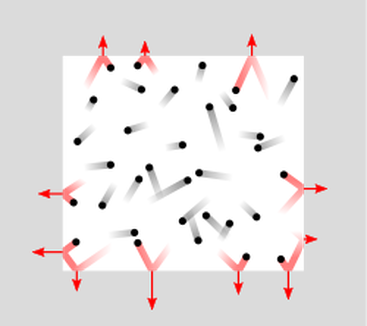 Pressure as exerted by particle collisions inside a closed container. It's 9pm. Pete cut his ankle. We're not sure where or how. But he asked if I could come investigate when he noticed blood on the kitchen floor. He scraped off a chunk of flesh from his right ankle. His sock was saturated with blood. “You didn't feel this?” I asked. “No,” he said. I've been concerned about his feet since he's been in a wheelchair. They're often puffy, filled with fluid... and a bluish color. That can't be good. His right leg is weaker than his left, although both legs at this point are weak. He's lost a lot of dexterity in his fingers too. And while I'm listing things – his balance and core muscles have taken a hit this last year. Help. Yesterday's help was about cleaning up blood from an ankle. And then cleaning it up from the rug. And then cleaning it again from the ankle because it wouldn't stop bleeding. And then cleaning the rug again. Cleaning the leg rests on the wheelchair – ew. Yes, ew. Gross. But the thing that got me was having to clean the ankle again. He can do this. Once we found where the wound was, he could take care of it. He can left his leg, he can clean it. He can elevate it. He can take care of himself. I'm fine scrubbing the rug. I get that he's not going to be able to get on his hands and knees and scrub a rug. But taking care of his own ankle. Yes, he could. And yet he relied on me or I enabled him to rely on me for 30 minutes before I came to my senses. Wait a minute... you can do this. Why am I doing this? Why am I helping? Why do you need my help for this? There I stood in the middle of our gigantic handicap accessible bathroom sticking up for myself and my time and my energy. Like an attorney, I argued on behalf of the spouse who is being taken over by the caregiver. “Which do you want?” I asked, “A spouse or caregiver.” Both. The answer is both. Now it's 5:44 in the morning. I hear the beep of his electric wheelchair come on, “budup.” First I hear him grunt a tiny grunt as he swings his legs out of bed, hoping that the momentum will position him upright. Then I hear another grunt or two as he transfers from bed to chair. Then, “budup” and he's off. The wheels of the chair on the rug sound like Gumby. Remember Gumby? “Shoop, shoop” only this is more like a constant, “shooooo... until he stops, oop.” I'll wait without worry for about five minutes. Then I'll wonder why I don't hear anything. I'll give it another five and then if still there is no sound, I will say, “You ok?” Usually that is followed by “Yup.” Usually means 90% of the time. But 10% - yes, it's only 10% - but my Lord, it's 10% of the time, the answer is, “No, I could use some help.” The wound was open. Clean the wound. Clean the floor. Neosporin. Bandaids. This time there were no questions about whether he wanted a caregiver or a spouse. The answer is both. I am a spouse/caregiver. The hardest task is both balancing those roles and parsing which is which. When Pete cut his ankle, it was 9pm. We had a finished a full week of work and play together. A big party, an early morning with our granddaughter, a movie and a meeting with a builder. He's exhausted. It's possible that I am too. When he needed help again at 5:44, I helped because he's bleeding and tired and dripping blood on our floors! I step in because he needs to get back to bed so that he can get up for church tomorrow . That's where our friends are, where his support system is. It is the place where everyone knows his name. It's where others receive his love and return in kind. Some weeks when he misses church, I am the only human contact he has. It's 8:30am the next day and he's too tired to go to church.
2 Comments
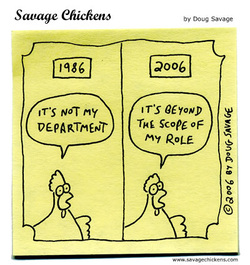 When I told my mother that we lost the lease, I became the proud recipient of a biblical pep talk. It began with, “”When I pray for you, I just know that God is in this.” My dad did the same thing. His pep talk began with, “honey. God has another plan.” I had the courage to tell my dad, “you're going to have to believe that for me today.” There was a pause and he said, “well, I can do that.” The housing option on the table that day was a one year lease. My friend thinks that my life is filled with unpredictability and therefore I should not introduce a known upheaval. I tried to say that maybe the lesson in it for me is to learn to live one day at a time. She cut me off to say that she would not agree that the Holy Spirit has that lesson for me in this. “You're already living that lesson,” she said. Note that she and my dad and my mom all believe that God is somehow in this. God has some “hand” in my next home. My mother wants me to rely on the Lord. “You've gotta simply trust the Lord for this. God is in this. I'm sure of it. She told me to go home, take Pete's hand and then quoting a scripture says, “present your requests to God with thanksgiving.” I didn't have the heart to tell her that I simply no longer think that finding me a place to live is on God's job description. In fact, if it is we all have much bigger problems. 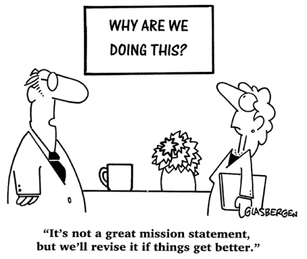 Multiple Choice: One of the tasks on God's job description is: A. Protecting children from the sex trade B. Feeding the hungry C. Preventing tsunamis D. Finding Beth and Pete a new home within their time frame and price range E. None of the above Answer – in my humble opinion or IMHO – E. None of the Above. Why do I choose E? Because it doesn't seem as though A-C is getting done and they are more important than D – IMHO. True of False: If any of A-D are on God's job description, God needs to be fired for gross negligence. My answer: T. Let's be honest, what's God doing? If there be a God, it's safe to say that God is not doing the things that we think should be on God's job description. Protecting widows and orphans, creating peaceful activity among humanity, keeping women from being abused, preventing wars based on religious ideology, preventing super powers from controlling the little people of the world. 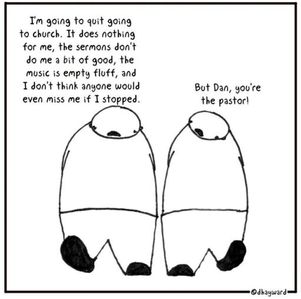 And so I go back to the original question and my original answer. Perhaps “none of the above” is on God's job description. First, isn't that great?! I can stop being angry at God for slacking on the job! If providing a new home for Pete and I is not on God's job description, then when it doesn't happen, I can stop blaming God. Not blaming God for things that God wasn't supposed to do is a good first step toward establishing an appropriate relationship with God. The next step might be getting to know God. If this were a possibility, I'd want to meet at a diner for breakfast. I imagine God already sitting in a booth and drinking coffee. I begin, “So God, where you from?” If I were writing the script, God would say, “I come from before.” I'd nod and wonder, “What the hell does that mean?” And then I'd wonder, “What the hell do I say to that?” I continue because I am tenacious. “So, what's your favorite color? Oh no, let me guess. It's green, right?” God responds, “I can see why you would think that. But have you considered that the way that you see green is not the way that I see green.” I'm thrilled that my tea has arrived and I look God right in the face (not quite sure what God's face is like) and I say, “In fact, I have considered that.” Clearly, I don't think that God is a great conversationalist. And so asking God to help me understand God's job description is probably not going to get me very far. And so I'm still left with considering what is on God's job description because I've ruled out the sex trade, hunger, tsunamis and my new home. To ask the question of God's job description begs the question of ours. What is our job description? The prophet Micah wrote the words, “What does the Lord require of you? But to do justice and to love kindness and to walk humbly.” Job Title: Human Being Objective: Do justice, Love kindness, Walk humbly with God Turns out that some of the things that we thought were on God's job description are actually on ours. Protecting widows and orphans, creating peaceful activity among humanity, keeping women from being abused, preventing wars based on religious ideology, preventing super powers from controlling the little people of the world... uh oh. 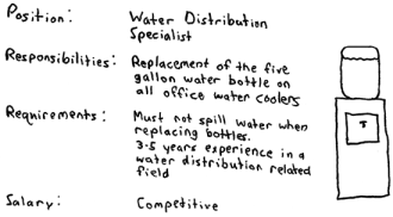 Mercy! What are we to do? Maybe that's where the conversation begins with God. What are we to do? And not What are you going to do? It seems that talking to God about the things that concern us helps. But how? Well, my mom was onto something. The full scripture that she was quoting is, “Present your requests to God with thanksgiving and the peace of God, which passes all understanding, will guard our hearts and minds.” Our job: Talk to God and to one another - and be thankful. God's job: Offer peace. I confess that I didn't go home and take Pete's hand and say a prayer. Instead I snuggled on the couch and asked, “What is it that you really want in a house?” And we talked. And I believed that God was with us. Pete and I don't always understand each other and we still have no idea what color green the other sees – let alone what color green God sees. I said my piece. Pete said his piece. God offered peace. That's on God's job description. 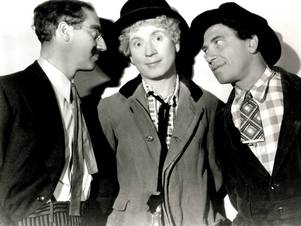 Generally speaking, falling down is funny. You don't even have to like the Marx brothers to think so. Physically, something in us relates, then we get embarrassed. We feel awkward and then we laugh - almost instinctively - whenever we see someone fall. No one really knows what to say to Pete after he falls but whatever they say, he usually responds with something like, "But I'm getting so good at falling." One time, I saw it happen from a distance. I had dropped him off at the curb to park the car. As I was walking up, I heard a few guys trying to help him up the steps. They took his walker before he had gotten close enough to reach the railing. So he stood there with nothing to hold onto, with very little balance and with this plan... I'll lean and reach for the railing. Something about Pete's nervous system is sticky. His brain's instructions to his legs travel through what seems to be elmer's glue. He reached and his legs didn't move, as if glued to the pavement. He reached probably five feet and began his descent, straight as a board. The message to his hands to reach out and break his fall also didn't make it through the glue and he landed. On his face. On a cement step. He rolled to the right... arm, elbow, hip, butt. His reaction - "well, let's see if we've got blood." My reaction - I used the F-word as both an adverb and an adjective (it's really a useful curse word if you think about it.) We happened to be going to a child's birthday party (enter my shame of using the F-word) and the oldest child heard that Pete had hurt himself - it looked like a bloody nose. She began to follow him around saying things like, "I had a bloody nose once; it hurts." or "You need to put peroxide on it. But that will burn. I don't like peroxide." adding "If it burns, you know that there's a cut there." and then repeat, "I had a bloody nose once; it hurts." This may sound irritating but it was the only words of sanity to be found. She lovingly stayed with us while we used up a box of tissues to find out what exactly was bleeding. She smiled and asked us if we would play Parcheesi when we were better. I don't remember the last time I played Parcheesi. Certainly, I wasn't married yet. I wasn't a mom yet. I wasn't a caregiver yet. I also think the last time I played Parcheesi, I didn't think that falling down was funny. Falling down hurt and my reaction to it was not to laugh but to cry. Sometime between then and now, the appropriate response of hurting and crying and disliking peroxide has turned into laughing. Instead of compassion and empathy, we awkwardly hide that we too have a propensity to fall down. Don't get me wrong... I have no judgment for others (and me still) who laugh at falling down. But after having been cared for by a child who clearly understood that falling down hurt, I'm beginning to question whether falling down is funny anymore. My apologies to the Marx brothers … and fast forward to this past weekend: A poem entitled Startled, I Wake 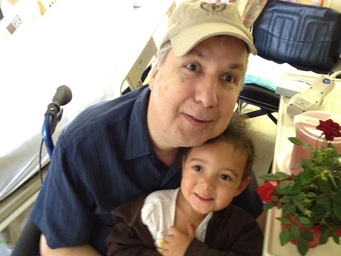 Julia and her PopPop Startled, I wake scared all of my mental faculties on high alert, readied with reason and fast response. He's on the floor, lodged between the bed and the electric wheelchair, a gift that has kept his falling to a minimum. “You won't fall if you're sitting down,” said his neurologist. He can't feel his legs, he doesn't have to tell me. They lie there, unmoving, slightly less colorful. I begin to move, holding his hands and propping him upright. He says, “I feel blood.” I turn on the lights, realizing that I didn't put my glasses on. I can't see anything. OK, I say. We'll check it out. First, let's get up onto the bed again. “I was going to the bathroom.” OK, we'll figure that out too. Bending legs first, Lift to kneeling position. “Can you do this with me? Yes, I think so. Up to stand, quickly twist to sit on the edge of the bed. When we fell asleep, he was so tired. Beyond tired. Not good. And his body was buzzing. His energy shaking the bed, I could feel it once I settled myself. His energy is calm now. Still tired, but not buzzing. Now he is tearful, dreading his dependence as I look for the source of blood. A gauge to his head – but once cleaned up more like a cut. A scrape on his arm, a ding to his ankle - the other ankle is still healing. His legs – they're discolored – and they alarm me. Clean wounds, we crawl under the covers together. Touching, soothing one another. He falls asleep first. Startled, he wakes me - needing help. my mental alertness is set to grace and mercy, not fear. Again, we crawl under the covers together, touching, soothing, sleeping. Startled, my cell phone wakes me the morning after. Two cups of coffee and breakfast, I sit alone on the couch, I listen for him to wake.  If my life were a playlist, this conversation is on regular rotation: I say, "Don't you think we should take ________, just in case you're tired later?" He says, "No, I'll be fine." I say, "It seems like you're having a harder time with ________." Silence as Pete begins to leave the house just as he was. I add, "I'm just saying that it might be easier for me if we had options once we got there." At this point, my heart rate is elevated. I remind myself that he is the most stubborn man in the world. I shove the walker in the trunk, taking special care to slam every door I can, I begin to ask, "what is the matter with me?" I feel ignored. It's easy to feel ignored as the caregiver... it's easy to be ignored as the caregiver. I spend a lot of time caring for my partner. Our shared life has shifted in so many ways. I do different tasks than I used to. He has other tasks that he needs to do in order to care for himself. And there are things he no longer can do. And neither of us are very good at asking for help. 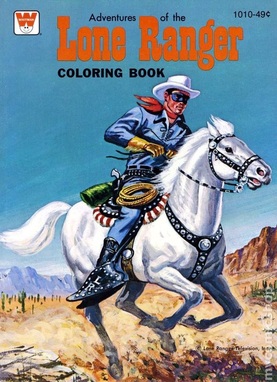 I am notorious for wishing Pete would acknowledge his limitations when I am unwilling to acknowledge mine. When I am rested and well fed, when I have exercised my body and employed my creativity, I am at my best. I have no problem juggling our personal life, his illness, and my career. But I work a lot and I often go without protein, I skip the gym and watch television and my well of grace runs dry. And that is when this conversation repeats itself. After I freak out... after I wallow in my own neediness... after I sleep on it and find some protein, I'm so ashamed. Who yells at a chronically ill person? Who slams the doors of her car because her husband, who is chronically ill, asserts his own will? After all, he doesn't get his way often. And he's not really ignoring me. He loves me. And deep down I know that whatever happens, we'll figure it out... together. Then what's the matter with me really? I've discovered that I'm human. And so is he. We both would rather be "super" human. He always wanted to be the lone ranger... silently fix the world's ills. Folks yelling after him, "who was that masked man?" And my friends voted me "super woman" in college. But he's not the lone ranger and I'm not super woman. He can't fix this part of our life. And I can't manage this part of our life. And we're tired. And sometimes we're hungry. And we're restless with life's challenges and dreams. Our well of grace runs dry. 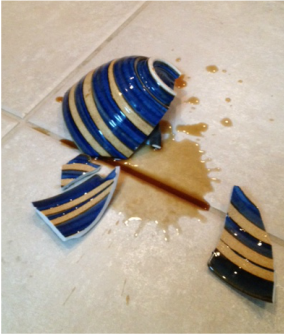 Yesterday Pete broke a mug as he was putting away the dishes. I wasn't bothered by Pete breaking a mug (my drugs must be working). I was glad that it wasn't another wine glass (I'm down to three reasonably sized wine glasses.) I woke up this morning thinking about the friend who had given me that particular mug - when I drank coffee from it, I remembered this friend. Something has changed in this friendship. Warning: I tend to make bigger meaning out of little losses. For example, the year that my youngest son went off to college, Pete came home to find his cat looking sick. The cat tried to get up; he convulsed and then flopped down dead. It was quite dramatic. Pete had to do the dreaded "dad duty" of calling said youngest son to tell him that his cat had died. Our little boy, turned man came home, grieved for his childhood pet, offered some love to the other cat that was still alive and then I did the "mom duty" of taking child and animal to the vet. I was recalling this story to a friend and making all kinds of connections between the loss of the cat and the loss that I was experiencing with child #2 going to college. Parts of him were changing, our relationship was different, I was experiencing little losses. And at this point, my friend interrupted me and said, "sometimes cats just die, Beth. There doesn't have to be a bigger meaning to it!" I looked at her stunned, “What??!!” Little things happen and they connect to bigger events, people, things, memories. Little things conjure joy, love, kindness, sadness, desire, peace, hope. I need the little things to help me understand the big things. I need to pick up the broken pieces of a mug on the kitchen floor to help me understand that when suffering chips away at us, friendships change. When we are broken, our functions change. We might not be able to drink (or talk, or relate, or even love) the same way that we used to. When I pick up one large piece still intact from the fall, I realize that it can still hold something... maybe not liquid, it makes me dream of what our friendship does hold if not what it "used" to hold. When I search for the little shards of pottery that shot far away from the mug, I asked myself, "in going through suffering together, what blew up?" In other words, aren't there pieces of ourselves that simply can't remain intact when we experience the blows that come with chronic illness? If we allow ourselves to experience suffering and illness, don't pieces of us shatter and leave little bits to be found around the scene of the crime? Or... what if, like the mug, I can't hold "stuff" anymore and I need others to hold "stuff" for me? Will others help Pete and I when we can't help ourselves? You see, I'm not a mug and when I break or shatter from falling, I don't get tossed into the trash. I have to live with my brokenness. Pete has to live with his brokenness. We have to find glue. And then we roam our world looking like we've been through an ordeal, cracks and scars. And we keep stumbling on pieces that we thought we had lost, gluing ourselves back together as best as we can. Or maybe sometimes cats just die and mugs break. There doesn't have to be a bigger meaning to it.  We were walking back to our car from the theater. Well from a Bonnie Raitt concert at the State Theater in downtown New Brunswick. New Brunswick is our city of choice. Both Dan and Faith hold degrees from Rutgers, the State University in the city of New Brunswick. I went to seminary there. Pete worked there. I did my field education at the First Presbyterian Church of New Brunswick and I did my chaplaincy at Robert Wood Johnson University Hospital in New Brunswick. Dan is a teacher at the charter school in New Brunswick. The city is the perfect size and has anything that you'd want from a city. We were walking from the State Theater to the parking lot behind the Presbyterian Church after seeing a great concert with Bonnie Raitt. Pete has had a crush on Bonnie Raitt since he saw her perform when they were both around 18 years old. The concert was a birthday present for Pete from me. Midway through the concert, she invited Dr. John onto the stage. Pete was thrilled. He doesn't really show “thrilled” very well but I could tell he was. I tend to like her newer stuff; I was particularly happy to hear the song “God was in the water that day.” I really like that tune with its haunting melody. She delivers the words on a low, slow drawl that seems to rest like steam over coolness of her demeanor. Castin' out a line/ Castin' out a line to the shadows/ Castin' out a line but no one's biting As we walked back to the car, I noticed that Pete was draggin his feet. “Pick up your feet,” I said. Nag, Nag, Nag. He seemed to be a little slower than usual. Pete ambles. He really belongs in South Carolina but the stork dropped him in central NJ. He speaks with a drawl. Maybe that's why he likes Bonnie Raitt. “Pick up your feet. Do you see that you're dragging your feet or foot? Are you ok?” He replied, “Yea, just a little tired I guess.” I'm not ready for him to be tired. I'm 18 years younger than Pete. I'm not ready to slow down. But here I am on Livingston Avenue, slowing down to see what's wrong with Pete and his dragging foot. We turned the corner and saw our white Honda just as we left it. I was driving. Once we got settled, I asked the oddest thing of him. “Honey, try something for me. Lift your right knee. Now your left. And your right again.” By the third round, he was unable to lift his right leg. He looked at me, “Well, that's odd.” “Yeah,” I say as I turn the key and back out of the parking lot of the New Brunswick Presbyterian Church. We pull away from the theater district to our right and head home in silence. Castin' out a line, Castin' out a line to the shadows, Castin' out a line but no one's biting We made an appointment to see our Internist, thinking that he must've pulled something or over-exerted a muscle in his back. Physical therapy was going to be the answer we were sure. I've been going to this doctor's office since I was a teenager. My mom still sees the managing physician. We started seeing her partner a few years back. She's Asian with a great smile and an even better laugh. She listens with her eyes. She too thought physical therapy would be a good first option and we were content, at least I thought we were. But then something other than my logical mind spoke up saying, “But I hear a change in his speech pattern too.” Full stop. “You do?” she asked. “Yes, I do. I think something else might be going on with him.” I said, not knowing where it was coming from. Was I making it up? Why? What data do I actually have to support a theory other than a pulled muscle? I still don't have an answer to that question. Sometimes I think my subconscious must've felt a rift in the force. Something other than my mind was acting on our behalf. Or maybe it was simply over-reaching anxiety. Worry that is unfounded running away with itself. Fear casting out a line... that caught a script for an MRI and a referral to a neurologist. Non-specific white matter. They found non-specific white matter in Pete's brain and spinal cord. We wanted our Internist to read the MRI to us first. We would go to a neurologist but wanted to hear something from her. We trusted her. She knew us. “I'm sorry. It reads like Multiple Sclerosis... Go see the neurologist. There is treatment. He will know what to do now.” The first neurologist that we saw was unaware that he was making human contact. He spoke to us in medical terms that we did not know. He related to us as if we were sitting beside him during a lecture not as the people whose lives were being radically redirected. I began to cry and he seemed surprised by such a response. Not surprise that would result in compassion, surprise that looked confused by basic human behavior. He excused himself to give us some privacy. Great. Both of us responded to the diagnosis like we had been kicked in the chest. Pete had the wind knocked out of him and I sat in the corner and cried. Neither of our responses stopped anytime soon. We tried to function when the doctor returned by listening to his thoughts about treatment but we needed to get out of there as fast as we could. He wrote a script, we made a follow up appointment and we headed for the white Honda again with Pete's foot dragging behind. Non-specific white matter. Multiple Sclerosi. Interferon medication. Chronic, progressive disease. Castin' out a line, Castin' out a line to the shadows, Castin' out a line but no one's biting. Doctors and specialty pharmacies will be part of our lives. Medication will arrive at our back door in a cooler marked, “refrigerate upon arrival.” Medicine that creates false targets for Pete's body to attack so that it stops attacking itself. Castin' out a line, Castin' out a line to the shadows, Castin' out a line but no one's biting. One test will lead to the need for another test that will reveal other problems in his arteries that will lead to the need for a cardiologist that will lead to more medication and more follow up visits. Always casting out a line. Always looking for the right diagnosis, the right treatment, the right next move. Sometimes it seems like we catch something, something bites and we feel relieved, like we're allowed to breathe again. And Pete walks home lighter in his step, but still dragging his foot. People would send us articles and websites to read. Everyone else had more energy to attack Pete's diagnosis than either of us have ever had. I don't think we ever really recovered from the first kick in the chest. I could sense the frustration around us that doesn't understand why we moved so slowly through the first few years with MS. We simply didn't want to create a relationship with MS. And working on treatments and thinking about alternative medicine or diet was giving MS way more play time than either of us was willing to give it. Were we “putting our heads in the sand?” Maybe we could look at it that way. It didn't feel like that though. It felt like we were under siege by MS. It had us, with no cure, no way out. We weren't ready to figure out how to live peaceably with something that had taken us captive. It wasn't a peaceable relationship. And if there was a need for a peacemaker, we were not ready to take that high ground. Instead I cried. All the time. Sometimes at the end of a work day, I would try to surf the internet for information about MS or treatment options. I was met each time with the suffocating reminder that MS was a torrential storm and we were stuck at sea in a fragile, human boat. Reading and critical thinking were not options. And with tears, I would cast out a line. But if God was in the water, God wasn't biting. |
What is this blog about?These are some of the reflections that I am fashioning into a memoir about coming to peace with my husband's diagnosis of multiple sclerosis.
|



